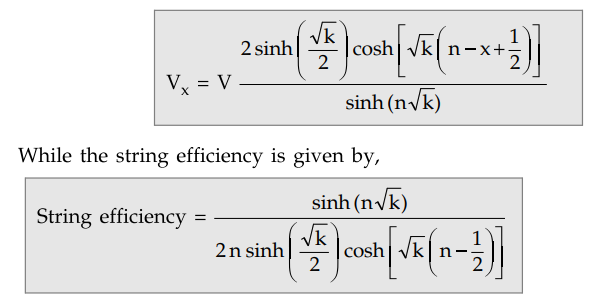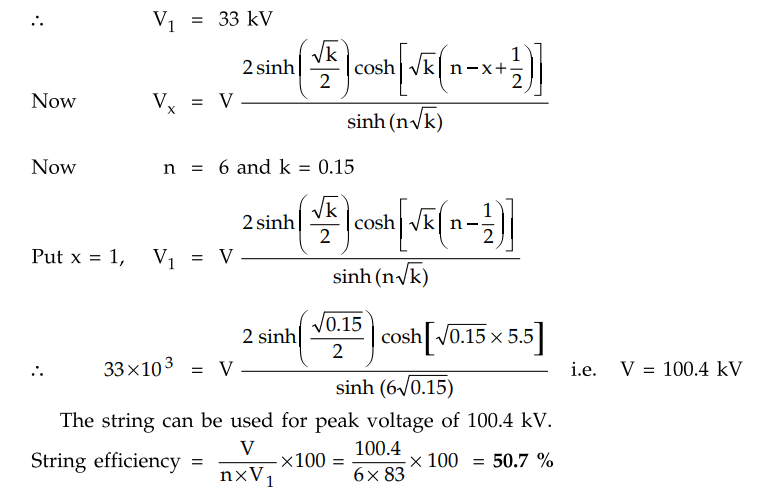Transmission and Distribution: Unit III: (b) Insulators
Voltage Distribution by Standard Formula
Insulators
When the number of units in a string of suspension type of insulator increases, calculation of voltage across each unit and the string efficiency becomes tedious, laborious and time consuming by the method discussed earlier.
Voltage Distribution by
Standard Formula
When the number of units in a string of
suspension type of insulator increases, calculation of voltage across each unit
and the string efficiency becomes tedious, laborious and time consuming by the
method discussed earlier. In such a case, following formulae can be used.
Let V
= Voltage across string
k = Ratio of shunt to mutual capacitance
n = Number of units in the string
V1, V2, V3
... = Voltages across the units starting from the line unit. Note that V1
, V2, V3 ...
are defined from bottom to top. Then voltage across xth unit is given by,

Example 5.8.1 A
string of suspension insulator consists of 6 units. The peak voltage per unit
is 33 kV. The ratio of shunt to mutual capacitance is 0.15. Find the maximum
voltage for which string can be used and the string efficiency. Use the
standard formulae.
Solution :
The maximum voltage is always across the unit which is V1 while using standard
formula.

Review Questions
1. Explain the voltage distribution across a string of insulators
by standard formula.
2. A string of 8 units is used as suspension insulator. The self
capacitance is 10 times the pin to earth capacitance. How much % of the total
voltage V across the string will be across the line unit ? Use standard
formula.
[Ans.: 0.275 V, 45.45 %]
Transmission and Distribution: Unit III: (b) Insulators : Tag: : Insulators - Voltage Distribution by Standard Formula
Related Topics
Related Subjects
Transmission and Distribution
EE3401 TD 4th Semester EEE Dept | 2021 Regulation | 4th Semester EEE Dept 2021 Regulation
